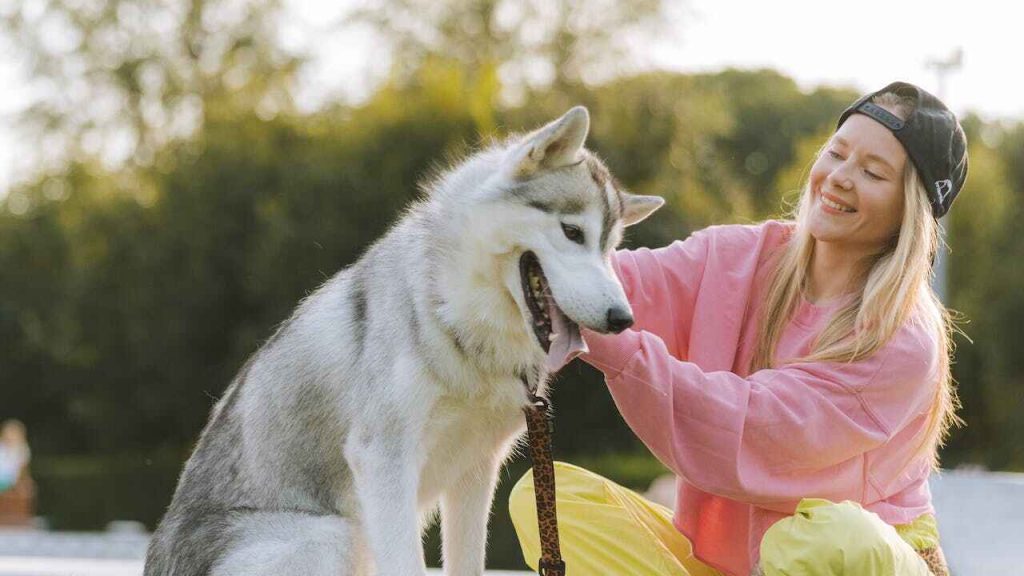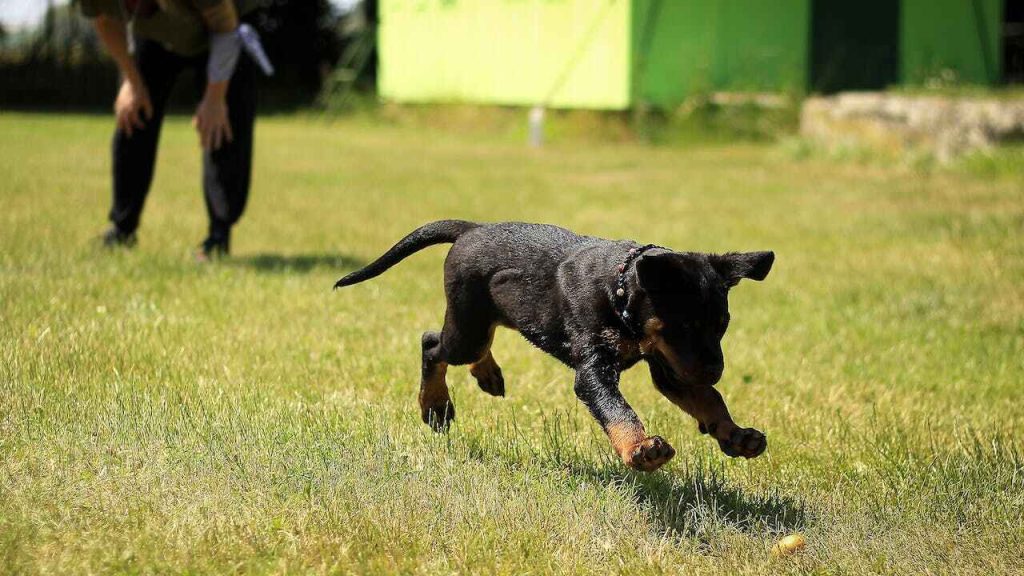German Shepherds are an intelligent, loving breed that could represent any personality type—playful, obedient, or protective, dog examples. Receiving the position would not be simple, but if you do, you can expect a rewarding road full of issues and responsibilities. Within this complete guide, we will seek to discuss the different developmental stages, training methods, health care, and more to make sure that your German Shepherd puppy has a healthy and happy puppyhood.
Developmental Milestones
Physical Growth
The 4-month-old German Shepherd you’ve got is growing rapidly in terms of physical development. For them to grow properly, one of the most significant factors is to provide them a nutritious, balanced diet.Behavioral Changes
When the puppy is exploring the world around it, you may perceive a behavior change. This knowledge has a positive impact on training and based on the knowledge, this process takes place normally.
Nutritional Requirements
Paying attention to proper diet composition rich in beneficial ingredients is necessary. Consult your veterinarian and devise a proper diet that will fit your growing pup.
Training Techniques
Basic Commands
First, teaching the basic commands such as sit stay, and come are important. There is nothing better than positive reinforcement techniques in helping to shape the nature of your puppy’s behavior.
Socialization
Given that the major cause of behavioral issues in German Shepherd is lack of exposure to different environments and people, it is crucial to prevent such a situation by exposing your pet to various places and people.
Housebreaking Tips
Perseverant spirit and consistency should be practiced if you are to housebreak a puppy. Teach them to set routines and praise them when they are successful at their bathroom breaks.
Health and Care
Vaccination Schedule
According to the proper vaccination plan not only protects your puppy from dangerous diseases, but it improves your pet’s overall wellness.. Please ask your doctor to consult on whether your puppy has received all his shots.
Grooming Tips
The German Shepherd’s fur is the coat that never needs any special care because regular grooming will help your dog maintain a healthy coat. Routine practice is needed to brush, nails trimmed, and ears cleaned.
Common Health Concerns
Be watchful of general health problems such as parasites, and allergies.
Exercise and Play
Appropriate Activities
However, practice the appropriate activities for their age level. Through interactive games, they can stimulate their minds and brains
The Value of Exercise
Puppies who lead an active lifestyle will experience good physical and mental health. Exercise with a daily walk and play time keeps a dog happy and healthy.
Mental Stimulation Techniques
You need to ensure that your puppy keeps its mind active by providing puzzle toys and regular training sessions. It is necessary to stimulate your mind as much as your body is physical exercise.
Building a Bond
Spending Quality Time
Making a good rapport means spending quality time together. Spend your time playing, cuddling, and communicating with the animal to be more trustable.
Effective Communication
Understanding Cues: Learn how to interpret the signals that indicate hunger, tiredness, and need of the toilet from your puppy. Reacting accordingly creates an atmosphere of safety.
Challenges and Solutions
Teething Issues
Give the baby some comfort toys that would help in relieving teething pain. Diverting the biting behavior leads to no destruction of possessions.
Separation Anxiety
Allow the puppy to slowly adapt to being alone. Use intervals of short duration at first and build up to longer ones.
Addressing Behavioral Challenges
You should seek the advice of a professional trainer to find out how you should handle particular behavioral problems. Consistency in training is also important with reinforcements only being positive.
Transition to Adult Care
Gradual Dietary Changes
The puppy will grow up eventually and the switch to adult dog food should be fairly slow. Inform your vet for advice.
Adjusting Exercise Routines
Adapt the exercise regimen of your German Shepherd as she or he gets bigger. Think of vitality and general fitness.
Monitoring Health as They Age
All the more, vet check-ups become crucial as your furry pup grows older. For early detection of health risks and so that the intervention is done at right time.
Case Studies
Real-Life Experiences
Draw lessons from the observations of other German Shepherd owners and guardians. Real-life stories are ever so interesting and have important information that can serve as guidelines for life.
Lessons Learned and Shared
Ownership often brings about memories that the owners would share at some point in the learning process. Find common hurdles and best practices to address them.
Expert Tips
Insights from Professionals
Valuable observations arise from professional trainers and veterinarians. However, the tips of experts can help you to gain deeper insight into your puppy’s needs.
Special Considerations
Recognizing these particular features will contribute to building up a specific treatment technique.
The Role of Toys
Choosing Appropriate Toys
Benefits of Interactive Play: Playing with your pup interactively helps to build a closer relationship between the puppy and you. It also enables them to improve their cognitive intelligence.
Safe Chew Options
Offer your puppy some safe chew options to fill its urges to chew naturally.
Traveling with a Puppy
Preparing for Trips
Covering the basics when traveling with your puppy should include planning and packing. The cargo is placed in familiar items and a comfortable crate, making the trip slightly less troubling.
Ensuring a Comfortable Journey
Make sure to secure your German Shepherd in an airy cage or a seatbelt harness while riding the car.
Handling Different Environments
Endeavor to expose your puppy to multiple environments slowly but surely. This exposure makes them confident and adept at facing new environs. Ensure also that you have essentials such as water, food and comfort items in your person all through your life
Social Media Communities
Connecting with Other German Shepherd Owners
The online communities have opened up the door for the German Shepherd lovers to interact with each other. Share your difficulties, get advice from your friends and become a part of a support team.
Learning from Shared Experiences
By reading other owners’ stories, every owner can learn something from them. Learn tricks about training, healthcare and handling peculiar challenges.
Seeking Advice and Support
However, if you face difficulties by any chance, do not hesitate to consult the community for guidance. Indeed, owners with some practical experience can provide practical solutions that are based on what they know from their own lives.
Most Commonly Asked Questions
As a German Shepherd puppy is four months old, what should I deliver it?
If you want to learn more about eating well, visit your veterinarian. In most cases, there are nutritional types of dog food that should be recommended for a high-quality meal.
How do I deal with excessive barking?
Deal with the real issue behind the barking whether it is boredom, fear or over-exciting. However, this behavior can be modified by using training and positive reinforcement.
QAny tips for crate training?
Turn the crate into a happy place by putting treats and toys there. Incrementally, lengthen the time spent in the crate and pair with rewards.
Taking a health check-up of the pup is important but how often should it be done?
Regular vet assessment is important. Schedule your vet’s recommended vaccinations and wellness checkups according to your history.
How Should I acclimatize my newborn puppy to alien settings?
first, start with the common places, gradually mixing in something new, and rewarding good behavior.
conclusion
Finally, having a 4-month German Shepherd means balancing the pleasure of being with such a great breed, and some challenges that one has to learn to cope with. Knowledge about their stages of development, quality care, and positive bonds improve the children’s healthy and happy experiences. However, not every puppy is the same, so a customized methodology should be used to their needs.
If you are prepared, it is time to take the German Shepherd on this exciting trip. Make sure to consider the advice presented in this guide. Share the good times, take lessons from failures, and cherish the camaraderie that you will have with your pet.
You May Like to Read: 10-Month-Old German Shepherd


